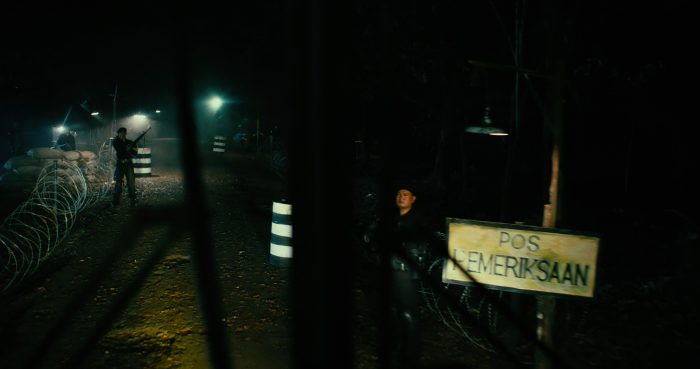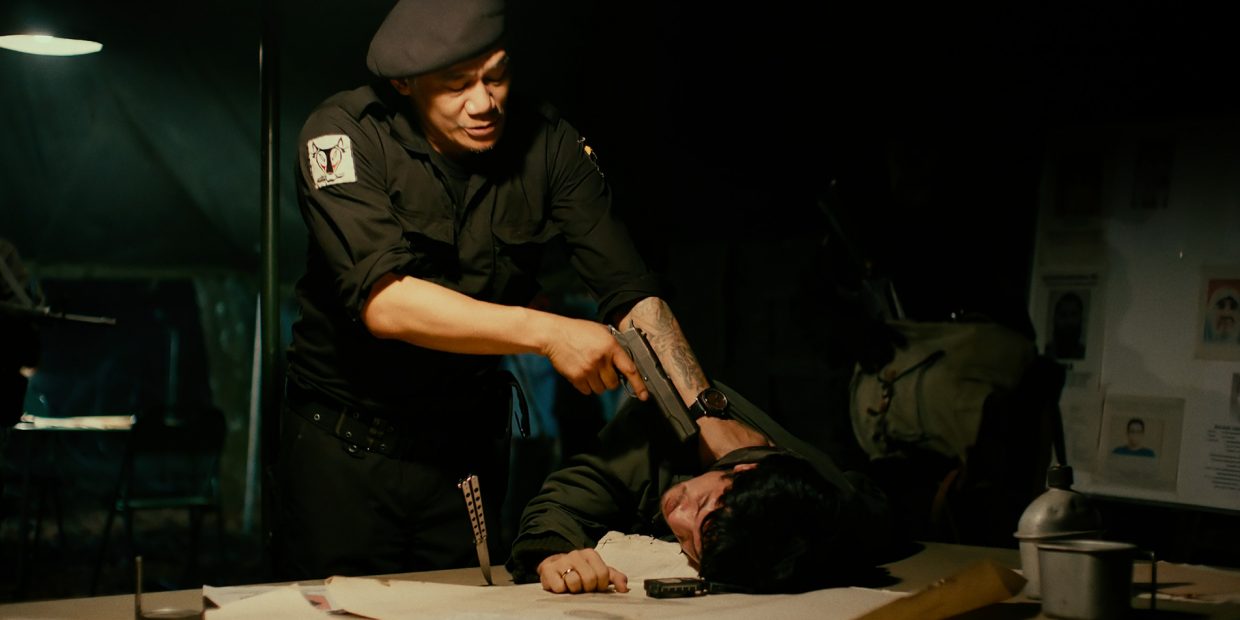Director: Emil Heradi
Far East Film Festival review
A 12-hour bus ride to the town of Sampar serves as a microcosm of civilian life amidst chaos and conflict in Emil Heradi’s sombre new thriller. Though its details don’t always live up to its bigger picture, Night Bus is an effectively moody descent into darkness that starts off like John Ford’s Stagecoach but ends up like Apocalypse Now.
The bloody skirmishes between the army and Sampar’s separatist rebels strike only a vaguely disconcerting peripheral presence when the film’s central cast – a societal cross-section of classes, generations and faiths – first embarks on their journey. Heradi demonstrates his most proficient direction in this initial calm before the storm as his camera takes its time exploring the confined space of this diverse group of passengers while injecting an underlying tension into both the interactions of his characters and their deceptively pretty surroundings.

When the danger comes, it is viewed first from a distance through such unsettling sights as a groups of armed guards abusing suspected spies at a checkpoint. But from the moment their bus nearly runs down a wounded rebel, the civilians are forced to question whether the grim reality unfolding around them can truly be kept outside of the confines of their vehicle. From here, the passengers are led into an increasingly violent series of encounters with soldiers and rebels – neither of whom come across as particularly hospitable – before delving even deeper into an infernal realm of cruelty and madness with a climax which reveals the real benefactors of the ever-ensuing local conflict.
Once the tragic story trajectory of Night Bus – along with its blaring, dread-filled soundtrack – moves in for the kill, Heradi’s relatively understated direction only halfway follows, lacking the visual intricacy and immediacy to maximise the impact of the film’s most operatically unpleasant moments. In that sense, Night Bus is often a film that works better in its broad strokes than in the particulars of its execution but it amounts to a stirring and politically resonant illustration of the impossibility of living a stable life while the insanity of war plays out in your own backyard.





